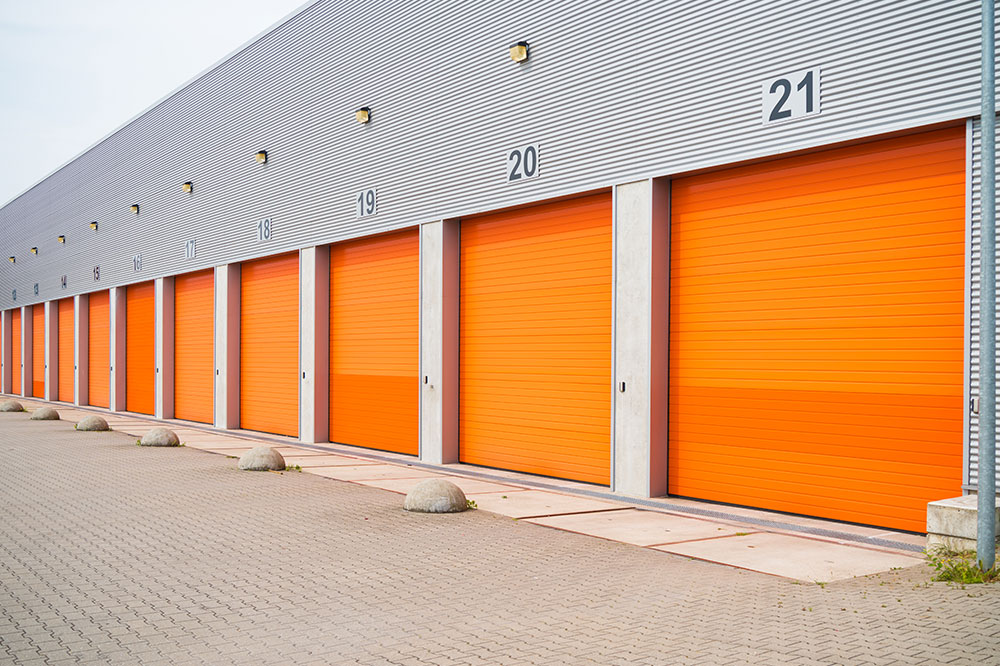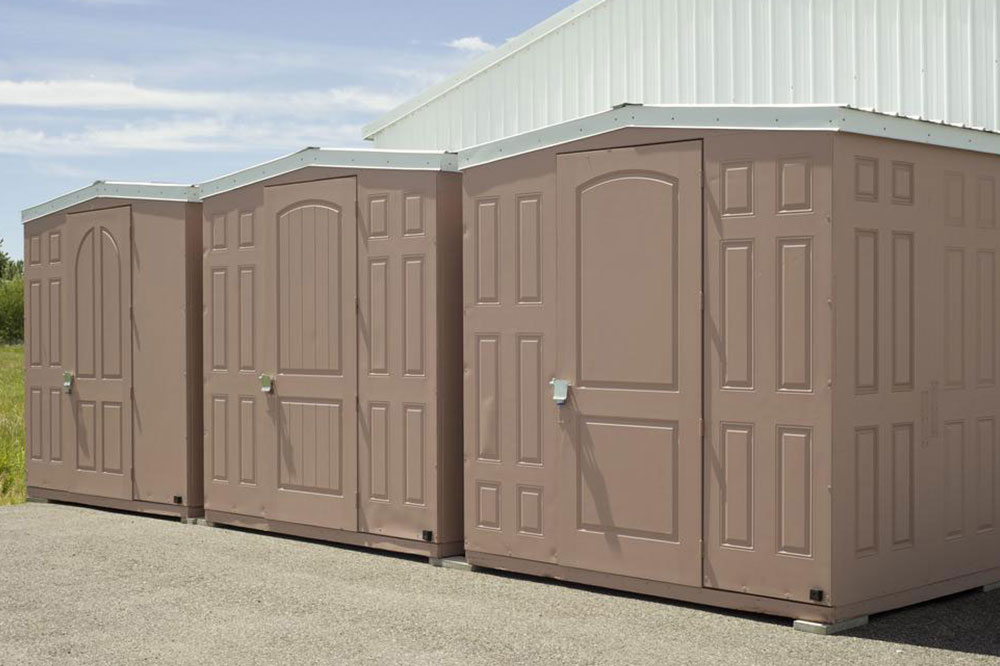Complete Guide to Bidding on Unclaimed Storage Units at Auctions for Profitability
This comprehensive guide explores the process of bidding on unclaimed storage units at auctions, offering strategies, tips, and insights for maximizing profits. Whether attending in person or online, learn how to evaluate contents effectively, develop bidding tactics, and identify valuable units. Perfect for investors and bargain hunters, this article helps you turn neglected storage spaces into lucrative opportunities through informed decision-making and strategic planning.

Complete Guide to Bidding on Unclaimed Storage Units at Auctions for Profitability
Millions of people rent storage units to safeguard their personal belongings or business inventory. Over time, some tenants fall behind on rent payments, leading storage facilities to auction off unclaimed units to recover costs. These auctions present unique opportunities for bargain hunters, investors, and entrepreneurs eager to turn overlooked storage contents into profit. Whether you're attending these auctions in person locally or participating through reputable online platforms, understanding how to evaluate and bid effectively is essential. This comprehensive guide aims to equip you with the knowledge, strategies, and tips necessary to succeed in the realm of unclaimed storage unit auctions.
Understanding Unclaimed Storage Units
When tenants fail to pay rent for three or more months, storage providers typically classify those units as unclaimed. Once classified, the facility takes legal steps to auction the contents to recover unpaid rent. These units, often thought to be of little value due to their abandoned status, can in fact contain a variety of items—some valuable, some mundane. It's critical for bidders to approach these auctions with a strategic mindset and diligent assessment skills to maximize their chances of finding valuable hidden treasures.
While most units are sold at a fraction of their actual worth, the potential for high returns is significant—if you know what to look for. From inexpensive household items to high-end jewelry and electronics, the contents vary widely, making every auction an exciting opportunity. Successful bidders know how to evaluate these units systematically and make informed decisions that prevent overbidding and ensure profitable resell.
Key Strategies for Assessing Storage Units During Bidding
Proper evaluation is crucial whether you're attending onsite inspections or bidding remotely. Here are proven tips and tactics to help you assess units effectively:
Conduct a Detailed Inspection
When physically inspecting a unit, utilize a flashlight to peer into dark corners, check labels, and examine bags or boxes for clues. For online bids, study available photos meticulously and request additional images if possible. Focus on signs that indicate potential value—such as high-quality furniture, collectible items, or brands known for resale value. Remember, sizes can be deceiving; a small unit could pack high-value items.
Perform a Smell Test
In person, smell can reveal volumes about the contents—musty odors may indicate mold, spoiled food, or pests, which diminish the unit's resale potential. Be cautious with units that have strong or unusual smells, as they may entail costly cleanup or storage issues. Online, this step isn't feasible, so err on the side of caution and prioritize units with appealing visual cues.
Estimate the Content's Value
Based on visible items, labels, and packaging, estimate the possible resale value. Focus on items like electronics, jewelry, vintage collectibles, or furniture that can yield high returns. Don't forget to consider costs associated with cleaning or repairs when calculating potential profit margins. Setting a maximum bid based on these estimates helps prevent overspending.
Assess Organization and Condition
Units that are neatly organized may suggest less treasure, but carefully packed, valuable items could still be present. Chaotic units might hide hidden gems amid scattered belongings. Both scenarios require attentive inspection—look for signs of valuable items or clues indicating the nature of the contents, such as brands, labels, or packaging.
How to Secure Good Deals on Storage Units
Finding profitable units involves understanding both the auction process and strategic bidding. Follow these essential steps to improve your odds of success:
Learn the Auction Process
Familiarize yourself with the specific procedures of your local or online auction platforms. Attend a few preliminary auctions as an observer to understand bidding dynamics. Connect with experienced bidders for advice and insights, which can be invaluable when developing your bidding strategy.
Set a Clear Budget
Before participating, establish a strict maximum bid limit based on your valuation calculations. Stick to this budget to avoid emotional bidding and overspending, ensuring your investment remains profitable in the long run.
Identify the Items You Are Interested In
Focus on certain categories—like electronics, furniture, jewelry, or collectibles—that align with your knowledge and resale expertise. This targeted approach enables more efficient and effective bidding decisions.
Refine Your Bidding Strategy
With experience, develop and adapt your bidding tactics. Consider starting with lower bids to gauge competition and incrementally increasing bids on units that show promise. Use sniping techniques—placing winning bids at the last moment—to reduce price escalation.
Different Types of Storage Units You Can Purchase
Storage facilities offer a variety of unit types tailored to diverse needs, including personal, business, or vehicle storage. Understanding these options helps you target units that best match your investment goals:
Commercial Storage Units
Designed for businesses to store inventory, supplies, or equipment. These units often come with easy access, enhanced security features, and climate control options—a good fit for larger-scale resale operations.
Personal Storage Units
Ideal for individuals moving houses, decluttering, or managing household items temporarily. These units typically offer affordable rates and flexible rental durations, making them accessible to small-scale investors or hobby traders.
Student Storage Spaces
Budget-friendly units tailored for students to store personal belongings during breaks or academic years. These tend to feature smaller sizes and lower prices, catering to casual storage needs.
Vehicle Storage Facilities
Purpose-built for storing cars, motorcycles, RVs, and boats. These units provide weather protection and enhanced security, making them suitable for resale or long-term storage of vehicle-related items.
Industrial Warehouses
Large-scale storage spaces suitable for businesses needing to handle bulk inventory, manufacturing materials, or large equipment. Acquiring such units can be a strategic move for expanding your business storage options.
Shipping Containers
Strong, durable, and portable units used in transportation and transit. These containers are useful for those interested in logistics or selling storage solutions.
Small Lock-Ups
Compact units often used for vehicle storage or small equipment. These are typically affordable and quick to purchase, ideal for beginners.
Furniture Storage Units
Spacious and secure options for storing furniture and household items, often used by moving companies or property managers.
Although the prospect of striking a million-dollar deal overnight is unlikely, systematically exploring unclaimed storage units has the potential to unearth valuable assets. With patience, research, and strategic bidding, you can turn overlooked units into profitable assets and potentially build a substantial side income or even a scalable business enterprise from success in storage auctions.




